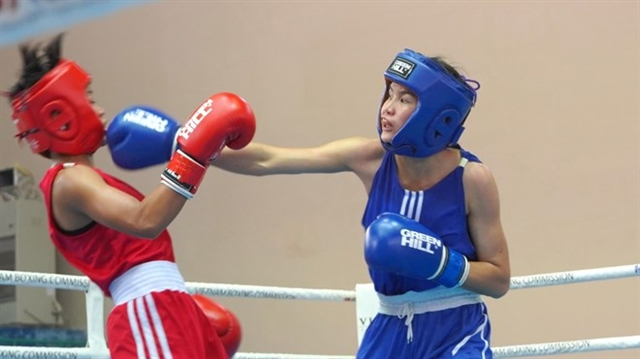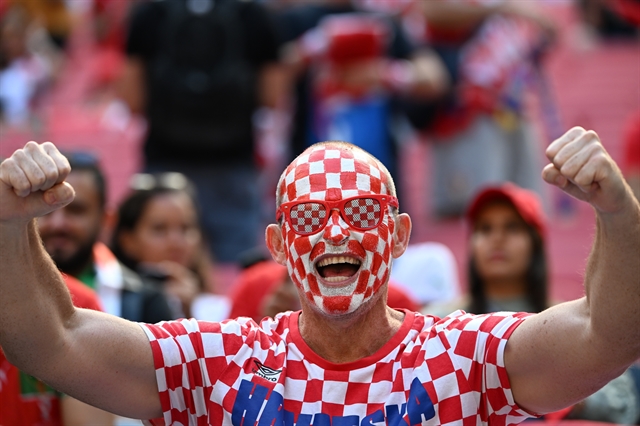 Sports
Sports


|
| A crazy fan cheering for Croatia with a great costume, but no beer in hand! — AFP/VNA Photo |
Anh Đức
HÀ NỘI — In many people's mind, sports and alcoholic beverages, particularly beer, goes together like ducks to water. Many think you can't really have one without the other.
A staggering 545,770,475 pints of beer were sold in Russia at the 2018 World Cup and 61.9 per cent of drinks bought by Premier League spectators is beer, according to MatchPint.
It's understandable why beer is the most popular drink in big sporting events. Watching the World Cup is also a chance to meet up with friends, and enjoy the world's best on the big screen.
In my experience, it's easier to get drowsy and chilled out after one or two pints of beer. All the worries and sorrows go away and only football and friends stick around.
And the marketing strategies of beer companies want to imprint our minds that "you need to have beer while watching sports". Most advertisements depict the enjoyment of people around friends, and the celebration of moments.
But beer, like every alcoholic beverages, has a major downside: In some cases it can make the drinker unable to control their behaviour.
We have all been there haven't we? Being so drunk that we text our exes, call our mamas back home, or do crazy stuff we would have never do when we are sober.
But the worst thing a person can do when they can't control themselves, is letting their behaviour affect others. Drunk driving and instigating fights are prime examples.
"Their fame precedes them. Beer-fueled hordes of football fans rampaging everything that's in their way, before and after the match," said El Plural before the 2019 UEFA Champions League Final between Liverpool and Tottenham in Madrid, "They have become the fear of the Madrid hotel & restaurant professionals."
Football hooliganism smells of blood, sweat, and beer. And that's because when we are drunk, we easily get aggressive and not thinking of the consequences - that's how alcohol affects the brain, according to DrinkAware.
This year in Qatar however, beer-infused violence is not a concern. The country's law forbids public alcohol use, and only non-alcoholic beer and soft drinks will be available inside the stadiums' perimeter.
Fans can find a beer if they look hard enough, but they'll have to dig deep into their pockets if they want a few scoops.
The last-minute decision by FIFA angered their official beer sponsor, who threatened a lawsuit, as well as many fans shouting "we want beer" in matches.
But many are saying these changes could be a good thing, including former Arsenal defender turned pundit Martin Keown, who said: "I think a dry, sober World Cup might be a good one for all of us".
And I agree with him, as I have been enjoying numerous World Cups without a yellow-coloured cup in my hand. Every memories, every joy of football is still there in my mind, from Grosso's winning penalty, to Lloris's blunder against Croatia.
Even in the stands, the ban of beers did not affect the fans' atmosphere. England supporters still roared for Rashford's wonder free kick, and Korean tears still roll down after the final whistle against Ghana.
Nothing, no substance should ever truly influence how you perceive life. It is how you feel and react in that moment that define your memories.
Now you'd never want to tell your children how you got into a big bar fight when football came home, would you? — VNS




